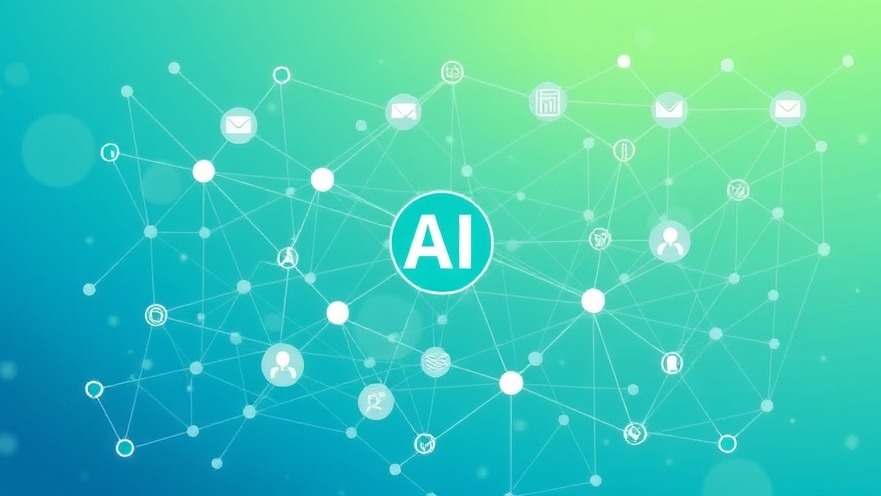Sarah owned a thriving local bakery in Denver, but something strange started happening in early 2025. Her phone began ringing with customers asking for specific items she mentioned in a blog post from six months ago. People were finding her business through questions she never expected - like "gluten-free birthday cakes near me that taste amazing" and "Denver bakery that makes custom wedding desserts."
What Sarah didn't realize was that AI search engines had learned to understand her business in ways traditional Google never could. While her competitors remained hidden in page two obscurity, Sarah's bakery was being recommended directly to customers with perfect timing and intent.
This is what happens when AI search engines and artificial intelligence truly understand your business exists in the digital landscape.
Key Takeaways
AI search engines and algorithms prioritize businesses they understand - creating competitive advantage through artificial intelligence optimization
Every search query becomes a business discovery opportunity - AI matches your expertise to customer questions through semantic search
Customer intent meets your solution through AI recommendations - prospects find you via intelligent search algorithms instead of hunting through results
Your business knowledge gets amplified across generative AI platforms - machine learning connects and recommends your content contextually
Generic competition fades when AI understands your unique value - specialized businesses win in artificial intelligence search results

The Hidden Revolution: Generative Engine Optimization (GEO) Happening Right Under Your Nose
ChatGPT reached 100 million users faster than any app in history, and as of February 2025, it now has more than 400 million weekly users. Google's AI Overviews now appear on billions of searches every month — at least 13% of all SERPs, and they appear for more than half of the keywords according to recent generative engine optimization studies.
One in ten U.S. internet users now turns to generative AI search first for finding businesses online, and AI Overviews now appear in 40.2% of local business search queries according to recent search engine optimization studies. Yet most business owners remain unaware that their digital marketing success is being determined by artificial intelligence algorithms that either understand their business expertise perfectly - or don't recognize they exist in the AI search ecosystem at all.
Think about how customers found your business through traditional search engines. They typed "plumber near me" into Google search and scrolled through ten blue links, hoping to find someone trustworthy. Today's AI search engines and generative AI platforms work through semantic search technology. When someone asks an artificial intelligence engine, "Who can fix my leaking bathroom faucet tonight in downtown Chicago?" the AI search algorithm doesn't display a list of search results - it provides one specific business recommendation that it understands through machine learning can solve that exact problem.
The question is: Will that business be yours?
What Happens When AI Engines Know Your Business Exists
Your Ideal Customers Find You Before Competitors
When AI algorithms can clearly understand and categorize your business, something remarkable happens. Instead of competing in a crowded marketplace of identical-looking results, you become the obvious choice.
Take Marcus, a personal injury lawyer in Phoenix. Before AI optimization, potential clients searching for "car accident lawyer" saw dozens of similar-looking law firm websites. Now, when someone asks an AI engine, "I was rear-ended yesterday and my neck hurts - what should I do?" the AI understands Marcus specializes in exactly that situation. It recommends his practice directly, complete with context about why he's the right choice.
The difference isn't luck. It's clarity. AI engines reward businesses they can understand completely.
Every Search Query Becomes a Discovery Moment
AI agents won't just passively suggest information—they'll actively make decisions on behalf of people. This means your expertise gets matched to searches you never even considered targeting.
A local yoga studio in Seattle discovered this firsthand. The owner, Jennifer, had written detailed blog posts about helping people with chronic back pain through gentle yoga. She never expected those posts to generate business. But when people started asking AI engines questions like "exercises for lower back pain that won't hurt me more," the AI connected her content to those searches. Her studio bookings increased 40% from people she never could have reached through traditional advertising.
This is the power of semantic understanding. AI engines don't just match keywords - they match meaning, intent, and context.
Your Business Knowledge Gets Amplified Across the Web
Traditional SEO meant optimizing for specific keywords and hoping people would find you. AI engines work by understanding concepts, relationships, and expertise areas. When they recognize your authority in a subject, they don't just index your content - they understand it, connect it to related topics, and recommend it contextually across thousands of different search scenarios.
"Quality content that demonstrates expertise and authority continues to be the foundation for AI search success," according to Google's official guidance on AI search optimization.
Consider how this worked for David, an HVAC contractor in Minneapolis. His blog posts about energy-efficient heating solutions weren't just found by people searching "HVAC contractor." The AI engines understood his expertise and started recommending his business for queries like:
"Why is my electric bill so high in winter?"
"Best ways to reduce heating costs in Minnesota"
"HVAC systems for old houses that need updating"
"Energy rebates for heating system upgrades"
None of these searches mentioned "HVAC contractor," but the AI understood the connection.
Customer Intent Meets Your Solution Seamlessly
Instead of prospects hunting through pages of results, AI guides them directly to businesses that solve their specific problems. This creates a completely different customer experience - and a completely different business opportunity.
When someone asks, "I need a wedding photographer who's good with shy people and outdoor ceremonies," an AI engine that understands your business won't just list photographers. It will recommend you specifically if your content demonstrates experience with exactly those challenges.
This precision matching eliminates the endless shopping and comparison that used to define online customer behavior. Instead of competing on price or fighting for attention, you win by being clearly understood.
See How Digital Marketing All Can Drive More Traffic to Your Website
Brand Voice Strategy – Let our team help you create your brand voice to attract your ideal customer.
Market Growth Opp Research – Let our team show you where you can gain additional traffic that you are missing.
Local SEO - unlock more SEO traffic. See real results. Dominate your local market.
Dominate Google – Let us get your company to the top of Google.
Competitive Link Analysis – Know what your competitors are doing.
Geo-Targeting – Let us find your customers in your desired location.
Content Marketing - Our team creates epic content to be shared, generate links, and attract traffic. We know the secret recipe for success.
Paid Media Advertising - effective paid strategies with clear ROI. You pay per result with us.
Blogging Services – Let us create a blog that will help you rank.
Search Price Optimization – Not only can you own the keyword in your local area and nationally, but you can control your advertising cost by getting out of the price war that exists in pay-per-click advertising and achieve a higher ROI.
Marketing Consulting: Develop tailored strategies to grow your brand and maximize impact.
AI Agent: Get a customized AI Agent that will become your 24/7 Sales Agent
Business Coaching: One on One coaching to help you through anything that is hindering your business.

Your Reputation Compounds Automatically
As AI engines recognize your authority, they increasingly surface your business for related queries. This creates a snowball effect of visibility that traditional marketing could never achieve.
Research shows that anywhere from 52% to 99% of sources mentioned in AI Overviews rank in the top 10 traditional search results. More importantly, Google AI Overviews now appear on billions of searches every month — at least 13% of all SERPs, and businesses that achieve AI visibility see average conversion rate increases of 23-47% compared to traditional search traffic. Once you're recognized as an authority in your field through generative engine optimization, the AI engines start working as your marketing team, constantly finding new ways to connect your expertise to customer needs.
Lisa, who runs a pet grooming service in Austin, experienced this compounding effect. After creating content that clearly explained her expertise with anxious dogs, AI engines began recommending her business for increasingly specific queries:
"Dog groomer for rescue dogs with trauma"
"Pet grooming for dogs afraid of water"
"How to calm an anxious dog during grooming"
"Austin dog groomer who understands behavioral issues"
Each recommendation led to more customers, more reviews, and more content opportunities - creating an upward spiral of AI recognition and business growth.
Competition Becomes Irrelevant in Your Niche
When AI truly understands what makes your business unique, generic competitors fade into the background. Instead of fighting for keywords, you own entire problem categories.
This happened to Roberto, who owns a small accounting firm specializing in freelancer taxes. While other accountants competed for "tax preparation services," Roberto's clear expertise in freelancer-specific issues made him the obvious AI recommendation for questions like:
"Tax deductions for Uber drivers"
"How to handle 1099 income from multiple sources"
"Quarterly tax payments for freelancers"
"Business expenses for remote workers"
The AI engines understood his niche so clearly that generic tax preparers simply weren't considered for these specialized queries.
"The businesses that will thrive in AI search are those that can clearly communicate their unique value proposition and demonstrate specific expertise," explains digital marketing expert Jane Chen.
The Real Difference: It's Not Just Traffic, It's the Right Traffic
The transformation goes beyond getting more website visitors. When AI engines understand your business, they send you people who are ready to buy, not just browse.
Traditional SEO often brought high-volume, low-intent traffic. People who searched "lawyer" might not need legal services immediately. But when an AI engine recommends your law firm to someone asking, "My landlord illegally evicted me last week - what are my rights?" you're receiving a qualified prospect with immediate need and clear intent.
This precision creates several business advantages:
Higher conversion rates from website visitors
Shorter sales cycles with pre-qualified prospects
Better customer lifetime value from perfect matches
Reduced marketing costs per acquisition
Stronger client relationships from the start
Advanced Generative Engine Optimization Strategies That Work
The most impactful GEO strategies fall into three categories according to leading AI search optimization research: expanding semantic footprint, increasing fact-density, and enhancing structured data markup.
Expanding Semantic Footprint means publishing content that covers broader topic clusters and adjacencies. Instead of targeting single keywords, successful businesses create content networks that help AI engines understand their complete expertise area.
Increasing Fact-Density involves embedding specific, verifiable information throughout your content. AI engines prioritize sources with concrete data, statistics, and factual claims they can reference and verify.
Enhancing Structured Data requires implementing schema markup, JSON-LD, and other technical elements that allow AI engines to discover, read, and include your content in generative AI responses more effectively.
Why Most Businesses Remain Invisible to AI Search Engines
The majority of business websites look identical to AI engines and generative AI platforms. Generic service descriptions, vague "about us" pages, and content that could describe any company in their industry create what experts call "entity disambiguation problems" for AI systems. AI algorithms can't understand what makes these businesses unique entities, so they remain invisible in the new generative search landscape and answer engine optimization results.
Common mistakes that keep businesses invisible to AI search optimization include:
Using industry jargon without clear explanations
Creating content that's too broad and generic
Failing to demonstrate specific expertise areas
Not connecting their services to actual customer problems
Missing context about who they serve best
The businesses winning in AI search have one thing in common: clarity. They make it crystal clear who they serve, what problems they solve, and why they're uniquely qualified to help.
Frequently Asked Questions About AI Search Optimization
What is Generative Engine Optimization (GEO) and how does it differ from traditional SEO?
Generative Engine Optimization (GEO) is the practice of optimizing digital content to increase visibility and citation frequency in AI-powered search systems like ChatGPT, Google AI Overviews, Perplexity, and Microsoft Copilot. Unlike traditional SEO that focuses on keyword matching, GEO emphasizes semantic understanding, fact-density, and contextual relevance that AI engines need to recommend your business. This includes answer engine optimization (AEO) and large language model optimization (LLMO) techniques.
How quickly can a business start showing up in AI search results?
Unlike traditional SEO that can take months, AI engines can recognize and start recommending well-optimized businesses within weeks. The key is creating content that clearly explains your expertise and connects it to specific customer problems. Businesses that make these changes often see initial AI visibility within 30-60 days.
Do I need to abandon traditional SEO for AI optimization?
Not at all. AI optimization builds on SEO fundamentals but focuses more on clarity and expertise demonstration rather than keyword density. Many of the same principles apply - quality content, clear website structure, and authoritative information - but the execution focuses on helping AI engines understand your business completely.
What happens to my current Google rankings if I optimize for AI?
AI optimization typically improves traditional search rankings too. The clarity and expertise demonstration that helps AI engines understand your business also signals quality to Google's traditional algorithms. Most businesses see improvements across all search types.
How do I know if AI engines understand my business correctly?
You can test this by asking AI engines specific questions your customers might ask and seeing if your business gets recommended. Tools like ChatGPT, Perplexity, and Google's AI search can show you how AI currently perceives your expertise and whether you're being recommended for relevant queries.
How does voice search optimization fit into AI search strategy?
Voice search optimization is a critical component of generative engine optimization because AI engines increasingly power voice assistants and conversational search interfaces. Businesses should optimize for natural language queries and question-based searches that people use when speaking to AI assistants. This includes creating content that answers specific questions people ask verbally, using conversational keywords, and structuring information in a way that AI can easily extract and speak back to users.
The businesses that adapt now will dominate their markets. Those who wait will find themselves increasingly invisible to customers who've moved to AI-powered search.
Ready to transform from invisible to indispensable? The AI search revolution isn't coming - it's here. And the businesses winning right now are those that help AI engines understand exactly why they're the perfect solution for their customers' problems.
The difference isn't just getting found. It's getting found first, by the right people, at exactly the right moment. That's the power of true AI search optimization.
I hope you enjoy reading this blog post. If you want to be our next success story, have my team do your marketing so your business is found in AI search. Click here to book a call!
 Add Row
Add Row  Add
Add 








Write A Comment